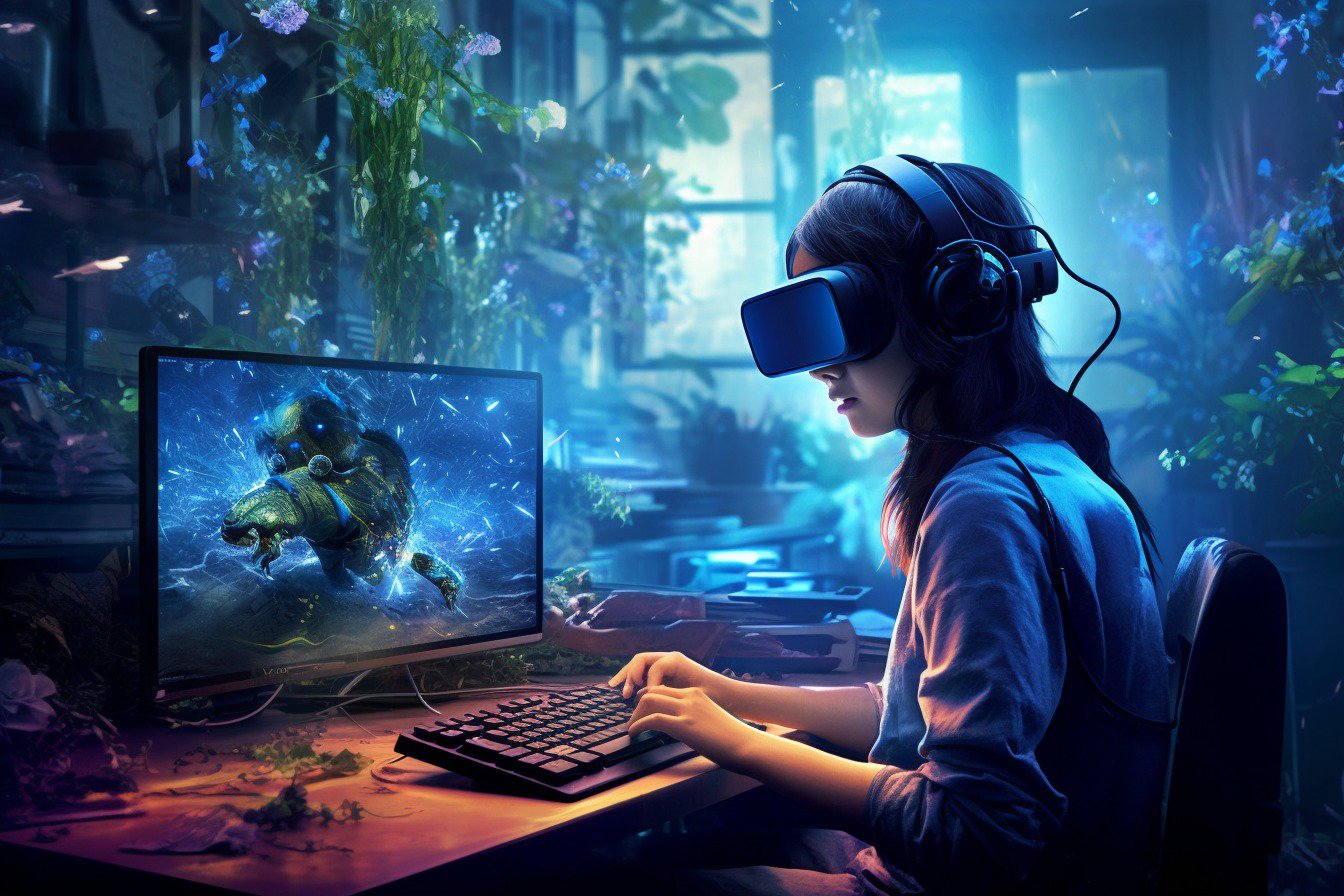
Artificial Intelligence (AI) in video games has transformed the way we play and interact with virtual worlds. From creating more realistic and challenging opponents to shaping dynamic, ever-changing environments, AI's role is pivotal. Imagine stepping into a game where every character you meet has its own set of behaviors, reactions, and even emotions, making your experience incredibly immersive. Or consider a world that evolves based on your actions, where the storyline adapts to your decisions. This isn't just fantasy; it's the reality of modern gaming, thanks to AI. In this introduction, we'll uncover 20 fascinating facts about how AI not only enhances gameplay but also pushes the boundaries of what games can be. Ready to see how AI is making virtual adventures more engaging than ever? Let's dive in.
AI's Role in Creating Realistic Game Environments
Artificial Intelligence (AI) has transformed video gaming, making virtual worlds more immersive and realistic. AI algorithms are adept at simulating complex environments where each element reacts to player actions in a believable manner. This dynamic interaction enhances the gaming experience, making it more engaging and lifelike.
-
AI-driven characters in games can learn from player behavior, adapting their strategies to provide a challenging and unpredictable gaming experience.
-
Environmental changes in games, like altering weather patterns or day-to-night cycles, are often managed by AI, adding depth and realism to the virtual world.
Enhancing Gameplay with AI
AI doesn't just make games look better; it fundamentally changes how we play them. From non-player characters (NPCs) with advanced decision-making capabilities to dynamic storylines that adapt to player choices, AI is at the heart of modern game design.
-
Adaptive difficulty is an AI feature that adjusts the game's challenge level based on the player's skill, ensuring an optimal level of difficulty throughout the game.
-
Procedural content generation, powered by AI, creates vast, explorable worlds on the fly, ensuring that no two players have the exact same experience.
AI in Game Development
Behind the scenes, AI tools streamline the game development process, assisting designers and developers in creating detailed game worlds.
-
AI algorithms can automate the creation of in-game assets, such as textures and models, significantly speeding up development time.
-
AI-driven testing tools play through early game versions, identifying bugs and glitches more efficiently than human testers.
The Future of AI in Gaming
As AI technology advances, its potential within the gaming industry grows. Future games will likely feature even more sophisticated AI, leading to more immersive and interactive experiences.
-
AI is expected to enable fully interactive and responsive game worlds where every element, from the weather to the wildlife, reacts in real-time to player actions.
-
Deep learning techniques could lead to NPCs with near-human levels of conversation and interaction, making game worlds feel more alive than ever before.
AI's Impact on Game Strategy and Design
AI not only changes how games are played but also how they are designed. Game developers now consider AI capabilities from the outset, leading to innovative gameplay mechanics and narratives.
-
Strategic games, like chess or Go, have seen AI opponents surpass human skill levels, pushing players to develop new strategies.
-
AI-driven analytics tools help designers understand player behavior, allowing them to tailor game experiences to what players enjoy most.
Ethical Considerations of AI in Gaming
As AI becomes more integrated into video games, ethical questions arise, particularly regarding data privacy and the potential for addictive game mechanics.
-
Developers must navigate the fine line between creating engaging AI-driven features and ensuring they do not encourage unhealthy gaming habits.
-
The use of personal data to tailor game experiences raises privacy concerns, with developers needing to be transparent about data usage.
AI's Role in Personalizing Gaming Experiences
Personalization is a key trend in gaming, with AI playing a pivotal role in tailoring game experiences to individual players.
-
AI algorithms analyze player data to customize game difficulty, storylines, and even in-game advertisements, creating a unique experience for each player.
-
Through machine learning, games can evolve based on player feedback, continuously improving and adapting over time.
The Challenge of AI in Multiplayer Games
In multiplayer settings, balancing AI's role is crucial to ensure all players have a fair and enjoyable experience.
-
AI can act as a moderator in online games, detecting and mitigating cheating or toxic behavior among players.
-
In games where AI controls certain characters, developers must ensure these AI characters do not have an unfair advantage or detract from the human players' experience.
AI's Contribution to Educational Games
Educational games benefit significantly from AI, which can adapt learning experiences to the needs of individual learners.
-
AI-driven educational games can adjust their difficulty and content in real-time, providing personalized learning paths for students.
-
Feedback mechanisms, powered by AI, offer instant guidance and support to learners, enhancing the educational value of games.
The Evolution of AI Game Companions
AI companions in games have evolved from simple, scripted entities to complex characters capable of forming bonds with players.
-
These AI companions can learn from player interactions, responding in ways that are meaningful and contextually appropriate.
-
Future AI companions might offer emotional support, acting as in-game friends that react empathetically to player actions and decisions.
A Final Glance at AI's Role in Gaming
AI has truly transformed video games, making them more immersive, challenging, and engaging. From creating dynamic and unpredictable enemies to crafting vast, evolving worlds, AI's influence is undeniable. It's not just about making games harder or easier; it's about crafting experiences that feel alive and responsive. Players now enjoy games that adapt to their play style, pushing the boundaries of storytelling and gameplay. As technology advances, we can only expect these virtual experiences to become even more complex and realistic. AI in video games is not just a trend; it's the future, shaping how stories are told and experienced in the digital realm. So, next time you dive into your favorite game, take a moment to appreciate the invisible hand of AI, making your adventure truly one of a kind.
Was this page helpful?
Our commitment to delivering trustworthy and engaging content is at the heart of what we do. Each fact on our site is contributed by real users like you, bringing a wealth of diverse insights and information. To ensure the highest standards of accuracy and reliability, our dedicated editors meticulously review each submission. This process guarantees that the facts we share are not only fascinating but also credible. Trust in our commitment to quality and authenticity as you explore and learn with us.


